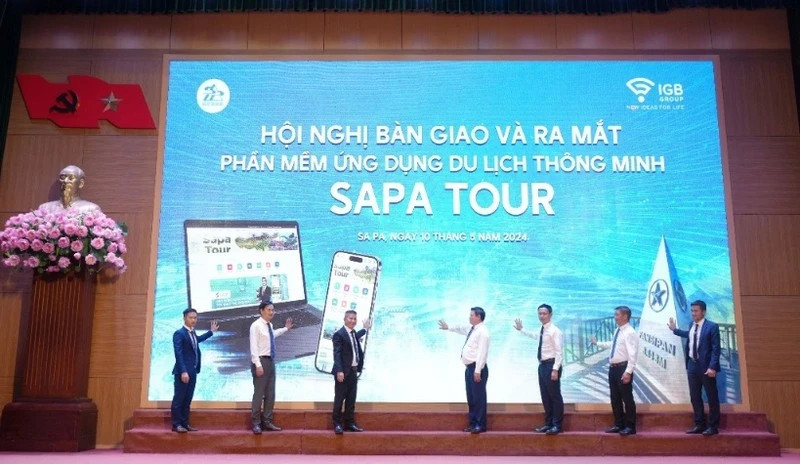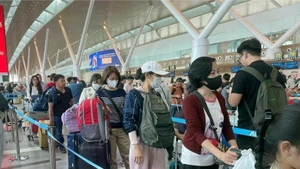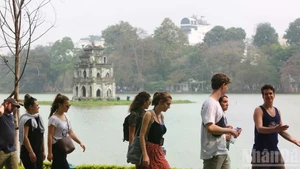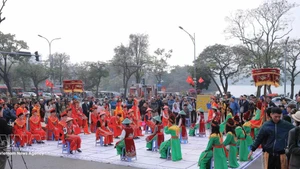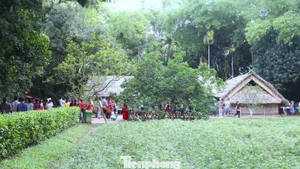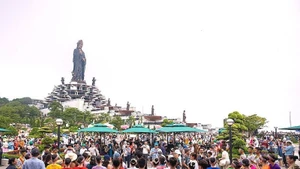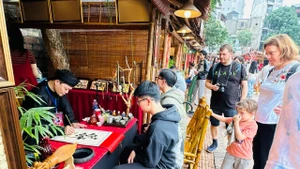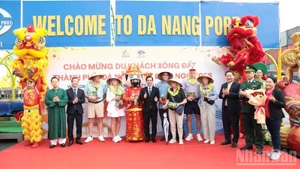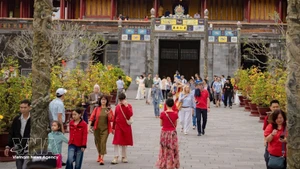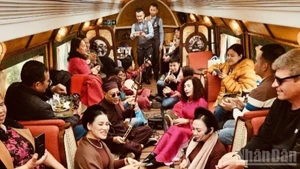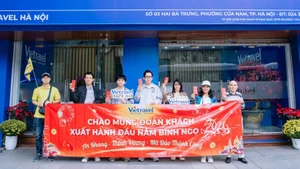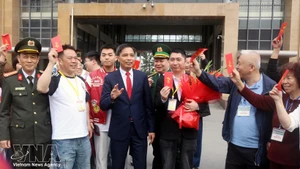The active participation in digital transformation to attract tourists has been demonstrated through a series of tourism activities and products in many localities across the country.
In Hanoi, the destinations and units, such as Thang Long Heritage Conservation Centre, Vietnam Fine Arts Museum, Vietnam National Museum of History, and Hoa Lo Prison Relic Site, have organised many online and virtual exhibitions and sold e-tickets, creating favourable conditions for visitors. In Ho Chi Minh City, the application of 3D technology in providing information and promoting tourism has been promoted, with the most notable product being a smart interactive tourist map, combined with virtual tour guides at destinations, both highly appreciated by tourists.
Many other localities such as Quang Ninh, Da Nang and Ninh Binh have also been promoting the use of artificial intelligence (AI) technology, 360-degree virtual reality technology (VR 360), and scanning QR codes for payment. These efforts have contributed to boosting tourism development. In addition, many large-scale seminars and discussions on smart tourism have been held to improve the public awareness of smart tourism towards effective methods of implementation.
Despite positive changes, according to experts, the development of smart tourism in Vietnam still faces many difficulties. Vietnamese tourism businesses are currently small and medium-sized enterprises with limited capital, so the investment in technology applications is still fragmented and lacks uniformity.
It is not difficult to realise that in the current online travel market, online travel companies with international brands are monopolising the market share. Currently, only about 10 Vietnamese enterprises are developing online travel businesses. In addition to competition issues, domestic tourism businesses also face many difficulties, such as unsynchronised information technology infrastructure (including telecommunications networks, modern equipment, etc.). Vietnam has not had much experience in international competition in the online tourism segment because tourism still leans towards traditional methods. The human resources for smart tourism are both lacking and weak, so they are unable to meet the increasing demand of tourists.
Radical solutions must be carried out quickly to remove bottlenecks for smart tourism. It is necessary to allocate appropriate funding for investment in machinery and technological infrastructure, creating a foundation for smart tourism to develop sustainably and synchronously. To operate a modern technology system, the training of human resources to serve the smart tourism ecosystem also needs great attention because high-quality human resources will participate in operating, using and creatively carrying out new technology applications, as well as updating new trends faster.
The Ministry of Culture, Sports and Tourism said that the above difficulties will be addressed in the next phase of the project of “Applying industry 4.0 technologies to develop smart tourism and promote tourism to become a key economic sector”. The ministry will also complete the smart tourism ecosystem to meet the increasing demands of the market, towards creating momentum for Vietnamese tourism to soon become one of the key economic sectors, actively contributing to the cause of national industrialisation and modernisation in the new era.
